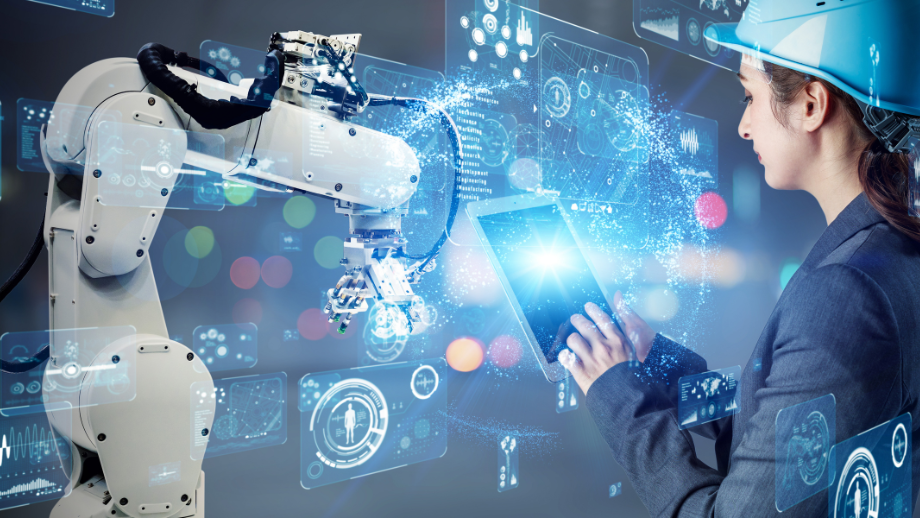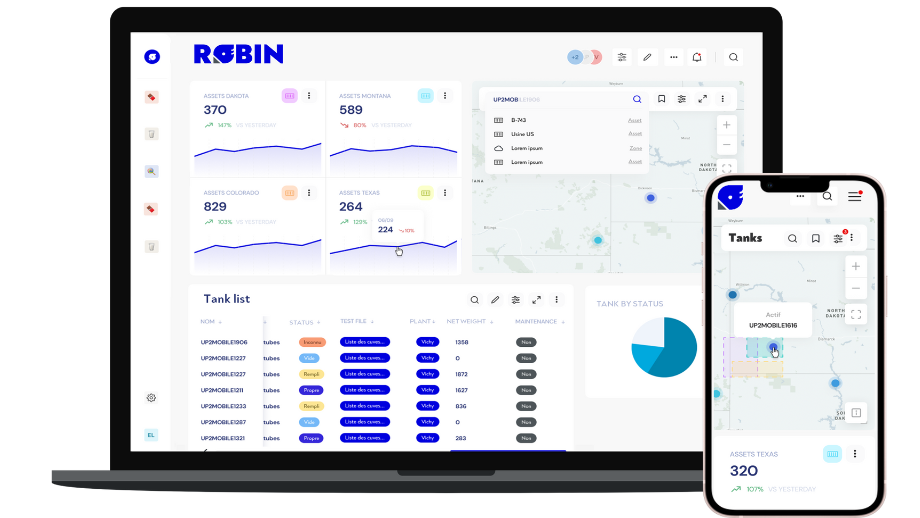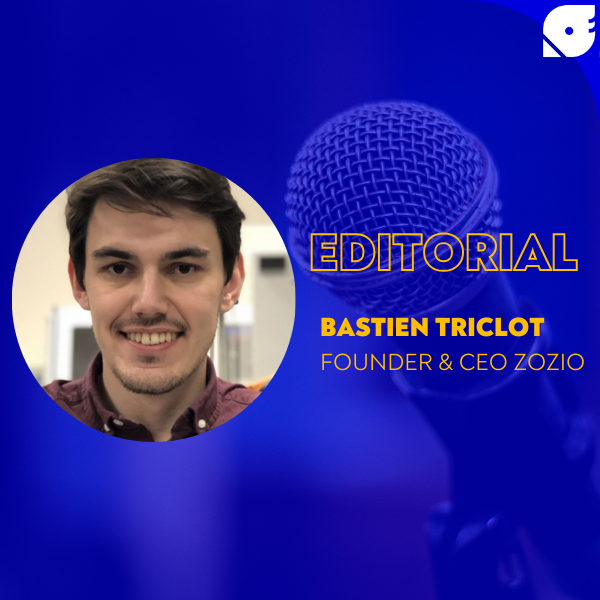From industry worker to augmented operator
The impact of the first two industrial revolutions was tremendous.
From 1760 to 1880, our societies underwent a profound reshaping: of our consumption patterns, of the new types of goods available, of our comfort of life, but also of our working habits and modalities. All of this was driven and enabled by the implementation of large-scale technologies and means of production.
After the upheavals linked to technology (mechanization), energy (coal, electricity, gas and oil) and then advanced technologies from the 1960s to the present day (computers, telecommunication networks, smartphones, GPS, sensors and connected objects, robotics, etc.), our production system has become more complex, and human working conditions have been transformed: yesterday’s worker, who had to rely mainly on his physical strength, has become a technical operator, his tasks “augmented” by technology: machines, robots, sensors and communicating and connected objects.

Lean Manufacturing, a method to manage complexity
To help manage the growing complexity of factories, new methods and processes have emerged: such is the case of Lean Manufacturing, which has made it possible to gradually increase production rates and scale up to mass production without loss of quality, thanks – in particular – to the principle of continuous improvement and the quest for operational excellence.
Toyotism, Fordism and…Teslism?

Lean Manufacturing has its roots in the automotive industry. It stems from Toyotism, which in turn was inspired by Taylorism and Fordism. It’s a productivity methodology designed to avoid waste and produce as leanly as possible, without over-stocking or over-production.
Taylorism, Fordism, Toyotism and…Teslism
Today, with Elon Musk’s company and its flagship electric car, the Tesla, we’re even talking about Teslism, a new trend that values hyper-reactivity thanks to the exploitation of real-time data.
Read also : Taylorism, Fordism, Toyotism
Every day, the gap widens between human skills and know-how and the capacity to process data thanks to digital technology, at the expense of a loss of meaning for the human being in his or her work, uncoupled from its material reality, sequenced and paced by the machine. In the midst of this discrepancy, the industrial worker may even find himself an assistant to the machine, subject only to its constraints, rather than a decision-maker. It is in this zone that low value-added tasks begin, and the disengagement from the value of what is produced and the work that is done.
Industry 4.0: a people-centric technological revolution
Expectations are therefore high that Industry 4.0 and the technologies of the Factory of the Future will be able to manage both human and technological aspects from a single source. A reconciliation in which data is captured in real time, distributed with ergonomic tools to the right people to facilitate collaboration and warn of risks in real time or even in advance.
This merging of human resources with the flow of data and information around production flows requires simple tools that enable rapid, informed decision-making.
Controlling production flow logistics to boost customer satisfaction
For manufacturers, managing production flows in real time requires installations that are perceived as costly and complex to deploy, due to constrained environments (large spaces, highly metallic zones, ATEX environments, specifications of norms and standards to be respected, cybersecurity…).
At the same time, industrial sites are faced with the challenge of keeping up with production rates in an increasingly versatile market (variability of products and quantities, rapid changes in demand, search for tailor-made solutions, changes in packaging, demand for greater traceability and transparency around the finished product)…
In this specific context of production tension, global logistics requires end-to-end computerized management – where operations are still highly manual, recorded by hand and subject to the risk of errors and communication breakdowns (erroneous production orders, lost documents, incorrect information, etc.).
Zozio, a solution to meet the new challenges of digitized industries.
Zozio, a solution to meet the new challenges of digitalized factories

That’s why at Zozio, we create solutions to digitalize processes at the heart of the factory, to support human resources in higher value-added tasks.
We firmly believe that the future of the factory and the reindustrialization of regions cannot be achieved by keeping low value-added jobs at all costs. Industry must never again resemble Charlie Chaplin’s Modern Times. By harnessing data and redistributing it at the right time and in the right place, we can enhance the value of the operator’s tasks, and his or her collaboration with the entire value chain.
We want to develop tools that evolve with the reality of factories and their order books, and support manufacturers’ competitiveness with responsive solutions that make their lives easier
Our pillars:
- Mapping of different zones, assets and containers inside and outside the plant, with a digital twin of the plant that is not a simulation,
- The generation of pre-configured alerts to anticipate bottlenecks (material expiration dates, supply shortages, under-utilization of a fleet of containers, etc.),
- Fully automated inventory management,
- The provision of a fully modular and configurable software platform, in conjunction with our support team or on a stand-alone basis,
- Rapid deployment of sensors and connected objects on industrial sites to ensure asset geolocation.
For the past four years, we’ve been working hand-in-hand with manufacturers who entrust us with their field problems, developing functionalities that keep pace with their changing constraints over time.
Would you like to find out more about our ROBIN solution and our catalog of sensors supplied by our technology partners?
Contact one of our experts to discuss the feasibility of your future digital project.
You can lean on us
Zozio

